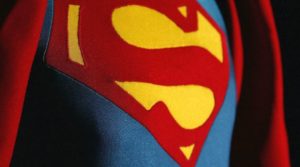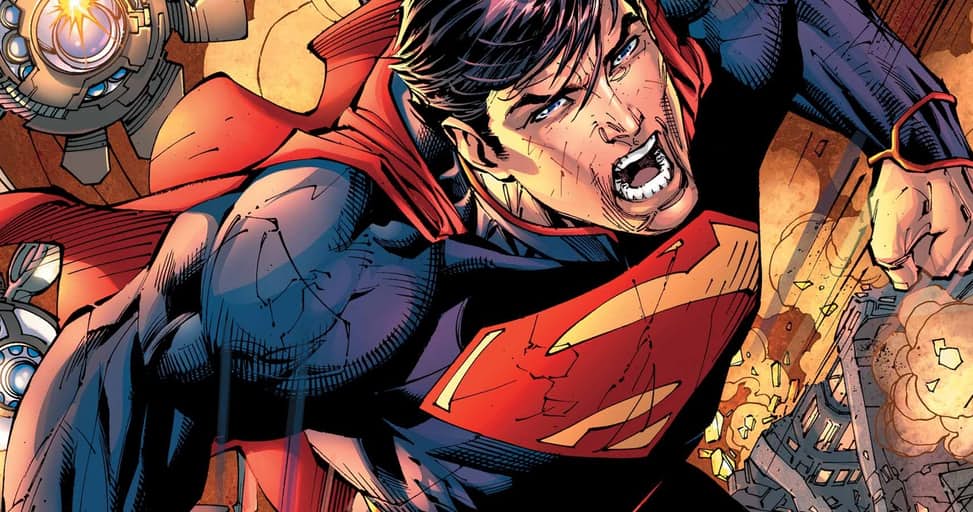I have been asked to comment on a short piece that was published yesterday on CBR.com, which I have to agree calls out for a response and fact-check. The piece announced that Frank Miller has said in an New York Comic-Con interview that he wants to “tackle one of the oldest, but oft overlooked, origin stories in the entire industry: Superman’s Jewish heritage.” The article then goes on to make a few questionable claims, many of which I have seen before, in my research on Superman and the so-called “Jewish-comics connection.” This notion holds that Superman, and – depending on who you read – the superhero genre, the US comics industry, or the comics medium itself, were created by Jews and has a sort of “Jewish essence.”
 Let us return to the quoted line about Superman’s supposed, but “oft overlooked” origin story and Jewish heritage. It does not take much effort to poke a hole in the claim that this is an overlooked topic. In the past ten years alone, numerous books have been published that have this issue as their central focus: in 2006, Rabbi Simcha Weinstein published Up, Up, and Oy Vey! How Jewish History, Culture, and Values Shaped the Comic Book Superhero; in 2007, comics writer and writing teacher Danny Fingeroth published Disguised as Clark Kent: Jews, Comics, and the Creation of the Superhero; in 2008 comedian and journalist Arie Kaplan published From Krakow to Krypton: Jews and Comic Books; and in 2012 masculinity scholar Harry Brod published Superman is Jewish? How Comic Book Superheroes Came to Serve Truth Justice, and the Jewish-American Way. On top of this, there are several other books about Superman or Jews and comics more generally, as well as innumerable newspaper and online articles, in which claims about Superman’s “Jewish origins” are similarly made. Let us also not forget that what Miller proposes has already been done; in 1998, for Superman’s 60th anniversary, DC put out a series of Man of Steel comic books in which the superhero traveled back in time to face the Nazis and in which Siegel and Shuster’s Jewish heritage got a nod.
Let us return to the quoted line about Superman’s supposed, but “oft overlooked” origin story and Jewish heritage. It does not take much effort to poke a hole in the claim that this is an overlooked topic. In the past ten years alone, numerous books have been published that have this issue as their central focus: in 2006, Rabbi Simcha Weinstein published Up, Up, and Oy Vey! How Jewish History, Culture, and Values Shaped the Comic Book Superhero; in 2007, comics writer and writing teacher Danny Fingeroth published Disguised as Clark Kent: Jews, Comics, and the Creation of the Superhero; in 2008 comedian and journalist Arie Kaplan published From Krakow to Krypton: Jews and Comic Books; and in 2012 masculinity scholar Harry Brod published Superman is Jewish? How Comic Book Superheroes Came to Serve Truth Justice, and the Jewish-American Way. On top of this, there are several other books about Superman or Jews and comics more generally, as well as innumerable newspaper and online articles, in which claims about Superman’s “Jewish origins” are similarly made. Let us also not forget that what Miller proposes has already been done; in 1998, for Superman’s 60th anniversary, DC put out a series of Man of Steel comic books in which the superhero traveled back in time to face the Nazis and in which Siegel and Shuster’s Jewish heritage got a nod.
As entertaining and interesting reading as the books and articles mentioned may provide, they suffer from a lack of support for their arguments, and rely mostly on recycling the same tropes and claims in a sort of internal feedback loop. This has led to a collection of common assumptions about what Superman “is,” based on nothing but the fact that his creators were Jewish. But once you shine a light on these claims, they start to fall apart. I will not go into a more general charting of these books or their claims here – for that, you can check out my forthcoming book on the subject or this post on my old, now-defunct blog – but will focus only on the latest article.
Continue reading Questioning Frank Miller and Superman’s “Jewish Essence” →
 This reading of Superman aligns much more closely with scholarship produced just two years ago by Martin Lund, entitled Re-Constructing the Man of Steel, than it does the work of The Forward‘s own Larry Tye or that of Harry Brod’s 2012 book Is Superman Jewish?
This reading of Superman aligns much more closely with scholarship produced just two years ago by Martin Lund, entitled Re-Constructing the Man of Steel, than it does the work of The Forward‘s own Larry Tye or that of Harry Brod’s 2012 book Is Superman Jewish?
 Let us return to the quoted line about Superman’s supposed, but “oft overlooked” origin story and Jewish heritage. It does not take much effort to poke a hole in the claim that this is an overlooked topic. In the past ten years alone, numerous books have been published that have this issue as their central focus: in 2006, Rabbi Simcha Weinstein published
Let us return to the quoted line about Superman’s supposed, but “oft overlooked” origin story and Jewish heritage. It does not take much effort to poke a hole in the claim that this is an overlooked topic. In the past ten years alone, numerous books have been published that have this issue as their central focus: in 2006, Rabbi Simcha Weinstein published